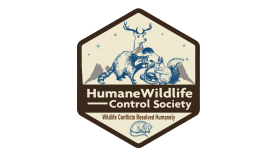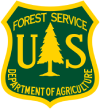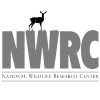Humane Wildlife Control in Norfolk, VA
The Humane Wildlife Control Society recommends non-invasive solutions to resolve human-wildlife conflicts. This includes:
Determining if the issue needs to be addressed at all
Opting for preventative measures first
Opting for wildlife exclusion as opposed to trapping
If trapping is the only way to solve the problem do so humanely
The Humane Wildlife Control Society screens candidates prior to recommendation. Our process requires any company we recommend to meet the following criteria:
Is properly licensed in Virginia for wildlife control
Carries appropriate business licenses and insurance
Complies with all Virginia laws and regulations for wildlife control
Adheres to the humane principles listed above.
In Norfolk, Virginia we recommend Humane Wildlife Removal Norfolk for professional wildlife control services. This is a private company that charges for their services.
Contact Information:
Xceptional Wildlife Removal
757-550-4886
If you have any wildlife issues that can be handled by the state government agency for free, the Virginia Wildlife Commission can help.
State Contact Information: (804) 367-1000
The State Department of Agriculture may also be able to address your wildlife problem for no charge.
USDA Contact Information: (804) 786-3501
Non-Lethal Wildlife Control in Norfolk, Virginia Introduction Why Choose Non-Lethal Wildlife Control? Maintains ecological balance by allowing wildlife to fulfill their natural roles. Reduces the spread of disease by preventing displaced animals from spreading pathogens. Avoids unnecessary harm to wildlife while ensuring public safety. Complies with local and state regulations on humane wildlife management. Preventative Measures to Avoid Wildlife Conflicts Secure Food Sources Keep trash bins tightly sealed with wildlife-proof lids. Remove outdoor pet food, birdseed, and fallen fruit from yards. Store compost in secure containers to prevent animal attraction. Modify Your Property Seal gaps and holes in attics, basements, and crawl spaces. Install chimney caps and vent covers to prevent nesting. Use fencing or netting to protect gardens and ponds from wildlife. Use Humane Deterrents Motion-activated lights, sprinklers, and sound devices discourage nocturnal animals. Natural repellents, such as vinegar or citrus-based sprays, deter wildlife without harm. Reflective objects, like aluminum foil strips or predator decoys, can deter birds and small mammals. Non-Lethal Conflict Resolution One-Way Exclusion Devices: Allows animals to exit a space without re-entry. Hazing Techniques: Loud noises, bright lights, and other disturbances can discourage wildlife from returning. Professional Wildlife Assistance: If an animal is trapped or injured, contact a licensed wildlife rehabilitator or animal control service. Legal Considerations It is illegal to trap and relocate certain wildlife species without a permit under Virginia law. The City of Norfolk follows regulations set by the Virginia Department of Wildlife Resources (DWR) regarding humane treatment of wildlife. Killing or harming protected species, including migratory birds, is strictly prohibited. Who to Contact for Assistance Norfolk Animal Control: (757) 664-7387 Virginia Department of Wildlife Resources (DWR): (804) 367-1000 Licensed Wildlife Rehabilitators: Contact for assistance with injured or orphaned animals.
Norfolk, Virginia, is home to a diverse range of wildlife, including raccoons, foxes, squirrels, and birds. As urban development expands, encounters between residents and wildlife have become more frequent. The City of Norfolk promotes non-lethal, humane solutions to managing wildlife conflicts, ensuring public safety while preserving local ecosystems. This page outlines best practices for preventing and addressing wildlife issues without harm.







